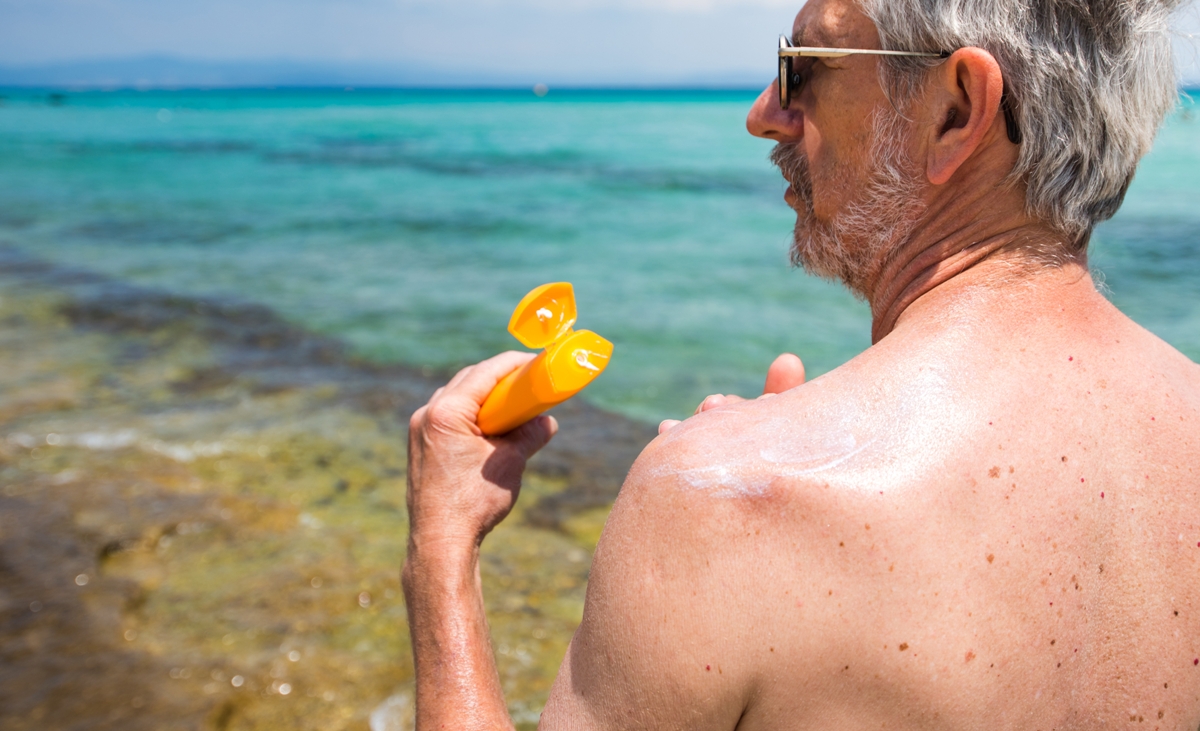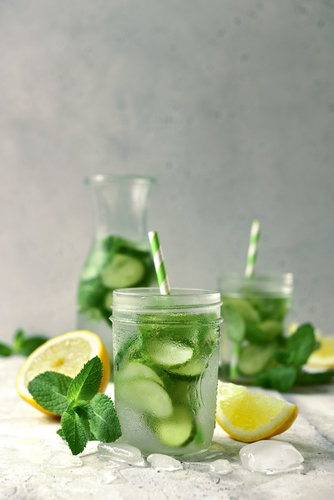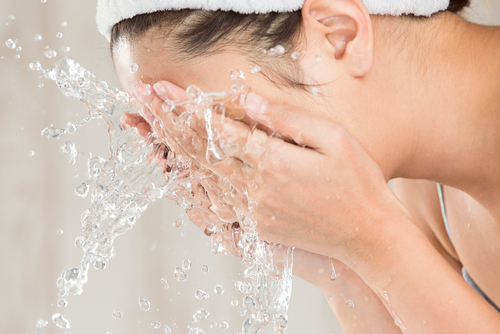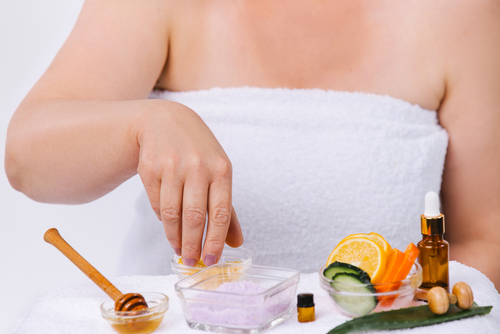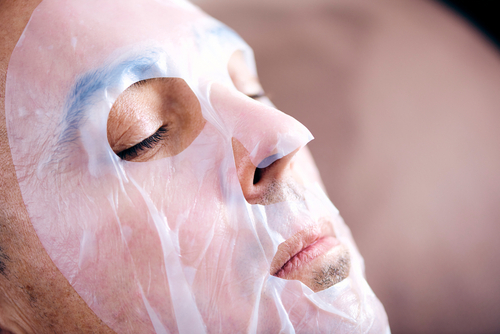Here are a few non- fussy tips to make sure your skin is cared for and happy during summer
We tend to focus on how winter dries out your skin and the various things you should do to take care of your skin in cold weather. The truth is summer can be harsher on your skin especially if you expose your skin to the direct rays of the sun during its peak hours (10am- 4.30pm).
The UV rays can age (UVA) and burn (UVB) your skin and prolonged exposure to UV rays lead to skin cancer and other skin infections and conditions. Plus your sebaceous (oil) glands work overtime – attracting dirt, dust, oil build -up and pimples / acne. And heat eruptions in the body, show up as angry rashes and blisters.
The bottom line? Be kind to your skin in summer as it needs your attention.
Here are a few non- fussy tips to make sure your skin is cared for and happy during summer:
Yes. Its water again! Drink loads of water and fluids to keep skin cells plump and moist. In summer, your skin’s best friend is water. It also helps to keep splashing your skin with cool water. It reduces body heat and cools your skin down.
Use a gentle cleanser twice a day for dry and mature skins and thrice a day for oily skin types. Keep rinsing your face with cool water at intervals. Iced towels dipped with lavender and Roman chamomile water also work well.
Exfoliate for that glow
Use a gentle scrub at least once a week to deep clean dirt, dust and dead skin cells. A good DIY scrub can be made with oatmeal, a pinch of turmeric, a teaspoon of yogurt, juice of half a lemon, half teaspoon honey, a teaspoon apple cider vinegar and papaya pulp (scrape pulp closest to the skin). Apply in a massage method and rinse after 15 minutes.
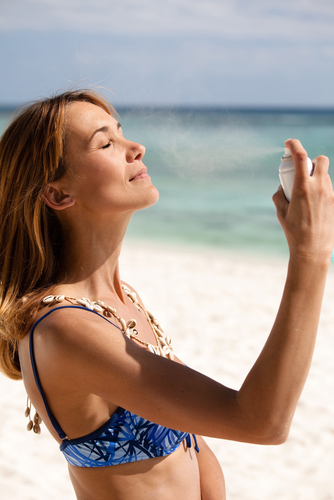 Tone and Mist- it refreshes your skin
Tone and Mist- it refreshes your skin
I like to use this as a two-in-one. Use a toner on a damp cotton pad after cleansing to wipe residual dirt off your skin. Use as a cool mist- keep it in the fridge and spray your skin whenever you feel like a pick-me-up. Good toners cum mist for summer are – cucumber juice, (good for oily skin), rose water, neroli (orange blossom) water, lavender water.
 Sunscreen – there’s no other way to go out
Sunscreen – there’s no other way to go out
An SPF is essential when you go outdoors. Choose one that has a broad ultraviolet spectrum (between 30-50 SPF; UVA and UVB rays). Re-apply every three hours if you are spending all day in the sun. Make sure to cover your hands, feet, shoulders, and neck as well. The suns UV rays are one of the causes of skin pigmentation (it increases melanin production), discolouration etc.
Even if you are in the car the sun’s rays penetrate through the glass, so do protect your skin.
If you plan on walking in the sun, carry a sun umbrella- it shields your head from the direct heat of the sun, which can lead to headaches, migraines and sunstroke, plus it protects your face from direct sunlight.
Today there are a variety of hydrating and anti-oxidant sheet masks available. Pick one that hydrates and brightens ( Vitamin C) your complexion.
At home, Aloe Vera gel suits most skin types. Be aware some skins are equally allergic to the gel. You can lather this on by itself or add a few ingredients to it like: a couple of drops of rose, sweet orange, sandalwood, geranium essential oils; turmeric (good for dull skin), honey (good to deeply hydrate and nourish mature skin), yogurt (good for all skin types), a squeeze of lemon (great for brightening the skin) – these are all super effective ingredients for summer skin woes. Mix the aloe gel in a bowl with your choice of ingredient and apply on your skin. Wash off after 10 minutes.
Our eyes and lips have the thinnest skin and can face the brunt of a scorching summer sun. Use a gentle lip balm to protect your lips and sunglasses with UV protection for your eyes. Rinse your eyes with cool water to keep them moist and healthy.
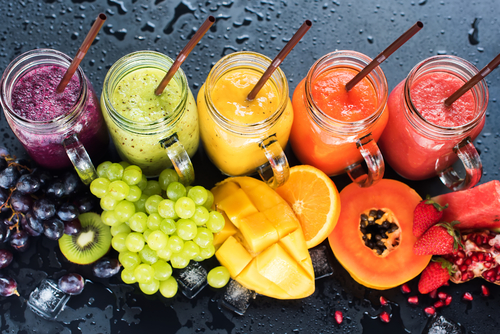 Food choices should be kind to your skin
Food choices should be kind to your skin
You skin’s best ‘food friends’ are light and nutritious in summer. So think fruits, salads, juices, yogurts and the like. Avoid heavy fried and masala foods on a daily basis.
Sebaceous glands work overtime in humid and hot conditions, so cool your skin and reduce the amount of oil it secretes by watching what you eat. Spicy heavy, fried foods can also stimulate acne because the oil build up has to erupt, and does so in the form of pimples and acne.
Keep your skin healthy with a diet high in vitamin C. Add as many greens, salads, smoothies, veggies, fruits, yogurt as you can to energise your body. It not only improves your skin quality but also provides you with stamina and brings down the skin’s temperature.
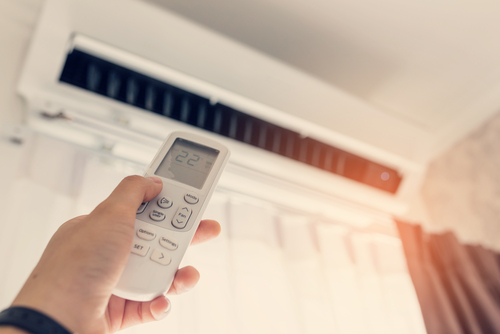 Too much AC can affect your skin
Too much AC can affect your skin
Air conditioning systems tend to remove the moisture in indoor environments indiscriminately. They also pull moisture out from your skin. This leads to dehydrated skin which is insufficient water in you skin’s cells. Eventually, the inner layers are affected, making your skin feel stretchy, flaky, and itchy. Make sure to drink up on fluids in an A.C environment.
Your skin naturally produces oils that are beneficial to its health and texture. A.C. lowers the temperature of your surroundings. As a result, sweat production reduces, causing toxins to remain within your skin. Oil production also reduces, leading to dull, dehydrated, and sallow skin. Make sure you use a good hydrating moisturiser when in A.C
Continual drying of your skin can cause dermatitis. If you already have a skin condition like rosacea, psoriasis, or eczema, air conditioning can aggravate it.
Use a humidifier to lessen the harmful effects of extended use of air conditioning, if you can’t balance it out with fresh natural air.
Help your skin breathe by wearing light colours and loose cotton clothing. You will be less prone to any skin rashes, and (sweat) bacteria build up on the skin, as sweat will evaporate faster.
Also Read –
How to Reduce Your Body Heat Through Summer — in 7 Simple Ways


